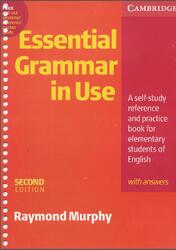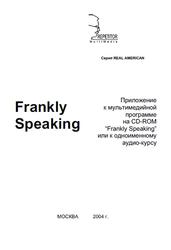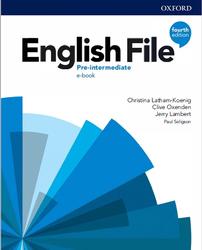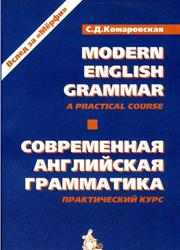English Grammar in Use, With answers, Murphy R., 2012.
English Grammar in Use was written as a self-study grammar book, but teachers may also find it useful as additional course material in cases where further work on grammar is necessary.
The book will probably be most useful at middle- and upper-intermediate levels (where all or nearly all of the material will be relevant), and can serve both as a basis for revision and as a means for practising new structures. It will also be useful for some more advanced students who have problems with grammar and need a book for reference and practice. The book is not intended to be used by elementary learners.
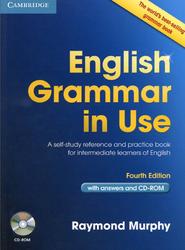
Present perfect 1 (I have done).
When we say that 'something has happened', this is usually new information:
Ow! I've cut my finger.
The road is closed. There’s been (there has been) an accident.
(from the news) Police have arrested two men in connection with the robbery.
When we use the present perfect, there is a connection with now. The action in the past has a result now: ‘Where's your key?' ‘I don't know. I've lost it.' (= I don’t have it now)
He told me his name, but I've forgotten it. (= I can’t remember it now)
‘Is Sally here?' 'No, she's gone out.' (= she is out now)
I can't find my bag. Have you seen it? (= Do you know where it is now?)
Contents.
Thanks.
To the student.
To the teacher.
Present and past.
1 Present continuous (I am doing).
2 Present simple (I do).
3 Present continuous and present simple 1 (I am doing and I do).
4 Present continuous and present simple 2 (I am doing and I do).
5 Past simple (I did).
6 Past continuous (I was doing).
Present perfect and past.
7 Present perfect 1 (I have done).
8 Present perfect 2 (I have done).
9 Present perfect continuous (I have been doing).
10 Present perfect continuous and simple (I have been doing and I have done).
11 How long have you (been). ?.
12 For and since When. ? and How long. ?.
13 Present perfect and past 1 (I have done and I did).
14 Present perfect and past 2 (I have done and I did).
15 Past perfect (I had done).
16 Past perfect continuous (I had been doing).
17 Have and have got.
18 Used to (do).
Future.
19 Present tenses (I am doing /1 do) for the future.
20 (I'm) going to (do).
21 Will/shall 1.
22 Will/shall 2.
23 I will and I'm going to.
24 Will be doing and will have done.
25 When I do/When I've done When and if.
Modals.
26 Can, could and (be) able to.
27 Could (do) and could have (done).
28 Must and can't.
29 May and might 1.
30 May and might 2.
31 Have to and must.
32 Must mustn't needn't.
33 Should 1.
34 Should 2.
35 Had better It's time.
36 Would.
37 Can/Could/Would you. ? etc. (Requests, offers, permission and invitations).
If and wish.
38 If I do. and If I did.
39 If I knew. I wish I knew.
40 If I had known. I wish I had known.
41 Wish.
Passive.
42 Passive 1 (is done / was done).
43 Passive 2 (be done / been done / being done).
44 Passive 3.
45 It is said that. He is said to. He is supposed to.
46 Have something done.
Reported speech.
47 Reported speech 1 (He said that.).
48 Reported speech 2.
Questions and auxiliary verbs.
49 Questions 1.
50 Questions 2 (Do you know where. ? / He asked me where.).
51 Auxiliary verbs (have/do/can etc.) I think so/I hope so etc.
52 Question tags (do you? isn't it? etc.).
-ing and to.
53 Verb + -ing (enjoy doing / stop doing etc.).
54 Verb + to. (decide to. / forget to. etc.).
55 Verb (+ object) + to. (I want you to. etc.).
56 Verb + -ing or to. 1 (remember/regret etc.).
57 Verb + -ing or to. 2 (try/need/help).
58 Verb + -ing or to. 3 (like / would like etc.).
59 Prefer and would rather.
60 Preposition (in/for/about etc.) + -ing.
61 Be/get used to something (I'm used to.).
62 Verb + preposition + -ing (succeed in -ing / accuse somebody of -ing etc.).
63 Expressions + -ing.
64 To., for. and so that.
65 Adjective + to.
66 To. (afraid to do) and preposition + -ing (afraid of -ing).
67 See somebody do and see somebody doing.
68 -ing clauses (Feeling tired, I went to bed early.).
Articles and nouns.
69 Countable and uncountable 1.
70 Countable and uncountable 2.
71 Countable nouns with a/an and some.
72 A/an and the.
73 The1.
74 The 2 (school / the school etc.).
75 The 3 (children / the children).
76 The 4 (the giraffe / the telephone / the piano etc., the + adjective).
77 Names with and without the 1.
78 Names with and without the 2.
79 Singular and plural.
80 Noun + noun (a tennis ball / a headache).
81 -'s (your sister's name) and of. (the name of the book).
Pronouns and determiners.
82 Myself/yourself/themselves etc.
83 A friend of mine My own house On my own / by myself.
84 There. and it.
85 Some and any.
86 No/none/any Nothing/nobody etc.
87 Much, many, little, few, a lot, plenty.
88 All/all of most/most of no / none of etc.
89 Both / both of neither / neither of either / either of.
90 All, every and whole.
91 Each and every.
Relative clauses.
92 Relative clauses 1: clauses with who/that/which.
93 Relative clauses 2: clauses with and without who/that/which.
94 Relative clauses 3: whose/whom/where.
95 Relative clauses 4: extra information clauses (1).
96 Relative clauses 5: extra information clauses (2).
97 -ing and -ed clauses (the woman talking to Tom, the boy injured in the accident).
Adjectives and adverbs.
98 Adjectives ending in -ing and -ed (boring/bored etc.).
99 Adjectives: a nice new house, you look tired.
100 Adjectives and adverbs 1 (quick/quickly).
101 Adjectives and adverbs 2 (well/fast/late, hard/hardly).
102 So and such.
103 Enough and too.
104 Quite, pretty, rather and fairly.
105 Comparison 1 (cheaper, more expensive etc.).
106 Comparison 2 (much better / any better / better and better / the sooner the better).
107 Comparison 3 (as. as / than).
108 Superlatives (the longest, the most enjoyable etc.).
109 Word order 1: verb + object; place and time.
110 Word order 2: adverbs with the verb.
111 Still, yet and already Any more / any longer / no longer.
112 Even.
Conjunctions and prepositions.
113 Although/though/even though In spite of / despite.
114 In case.
115 Unless As long as Provided/providing.
116 As (As I walked along the street. / As I was hungry.).
117 Like and as.
118 Like/as if/as though.
119 For, during and while.
120 By and until By the time.
Prepositions.
121 At/on/in (time).
122 On time and in time At the end and in the end.
123 In/at/on (position) 1.
124 In/at/on (position) 2.
125 In/at/on (position) 3.
126 To/at/in/into.
127 In/on/at (other uses).
128 By.
129 Noun + preposition (reason for, cause of etc.).
130 Adjective + preposition 1.
131 Adjective + preposition 2.
132 Verb + preposition 1 to and at.
133 Verb + preposition 2 about/for/of/after.
134 Verb + preposition 3 about and of.
135 Verb + preposition 4 of/for/from/on.
136 Verb + preposition 5 in/into/with/to/on.
Phrasal verbs.
137 Phrasal verbs 1 General points.
138 Phrasal verbs 2 in/out.
139 Phrasal verbs 3 out.
140 Phrasal verbs 4 on/off (1).
141 Phrasal verbs 5 on/off (2).
142 Phrasal verbs 6 up/down.
143 Phrasal verbs 7 up (1).
144 Phrasal verbs 8 up (2).
145 Phrasal verbs 9 away/back.
Appendix 1 Regular and irregular verbs.
Appendix 2 Present and past tenses.
Appendix 3 The future.
Appendix 4 Modal verbs (can/could/will/would etc.).
Appendix 5 Short forms (I'm/you've/didn't etc.).
Appendix 6 Spelling.
Appendix 7 American English.
Additional exercises.
Study guide.
Key to Exercises.
Key to Additional exercises.
Key to Study guide.
Index.
Бесплатно скачать электронную книгу в удобном формате, смотреть и читать:
Скачать книгу English Grammar in Use, With answers, Murphy R., 2012 - fileskachat.com, быстрое и бесплатное скачивание.
Скачать zip
Ниже можно купить эту книгу, если она есть в продаже, и похожие книги по лучшей цене со скидкой с доставкой по всей России.Купить книги
Скачать - pdf - Яндекс.Диск.
Дата публикации:
Теги: учебник по английскому языку :: английский язык :: Murphy
Смотрите также учебники, книги и учебные материалы:
Следующие учебники и книги:
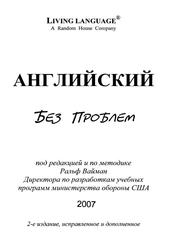 Английский без проблем, Вайман Р., 2007 — Курс английского языка Living Language который Вы держите в руках - первый основной курс английского языка в линейке курсов этого … Книги по английскому языку
Английский без проблем, Вайман Р., 2007 — Курс английского языка Living Language который Вы держите в руках - первый основной курс английского языка в линейке курсов этого … Книги по английскому языку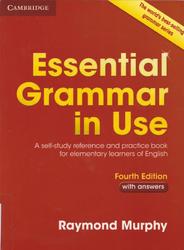 Essential Grammar in Use, Fourth Edition, With answers, Murphy R., 2015 — This is a grammar book for elementary students of English. There are 115 units in the book and each unit … Книги по английскому языку
Essential Grammar in Use, Fourth Edition, With answers, Murphy R., 2015 — This is a grammar book for elementary students of English. There are 115 units in the book and each unit … Книги по английскому языку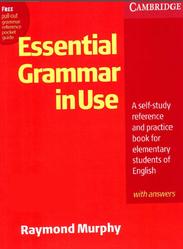 Essential Grammar in Use, Murphy R., 2007 — Essential Grammar in Use is a grammar reference and practice book for elementary learners. Modelled on Raymond Murphy’s highly successful … Книги по английскому языку
Essential Grammar in Use, Murphy R., 2007 — Essential Grammar in Use is a grammar reference and practice book for elementary learners. Modelled on Raymond Murphy’s highly successful … Книги по английскому языку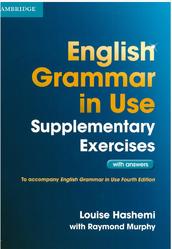 English Grammar in Use, Supplementary Exercises, With answers, Hashemi L., Murphy R., 2012 — An updated and revised edition to accompany English Grammar in Use Fourth Edition and English Grammar in Use Online. The … Книги по английскому языку
English Grammar in Use, Supplementary Exercises, With answers, Hashemi L., Murphy R., 2012 — An updated and revised edition to accompany English Grammar in Use Fourth Edition and English Grammar in Use Online. The … Книги по английскому языку
Предыдущие статьи:
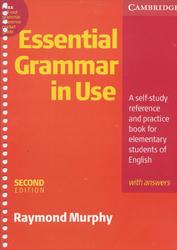 Essential Grammar in Use, Second Edition, With answers, Murphy R. — Essential Grammar in, Use is a grammar reference and practice book for elementary learners. Modelled on Raymond Murphy s highly … Книги по английскому языку
Essential Grammar in Use, Second Edition, With answers, Murphy R. — Essential Grammar in, Use is a grammar reference and practice book for elementary learners. Modelled on Raymond Murphy s highly … Книги по английскому языку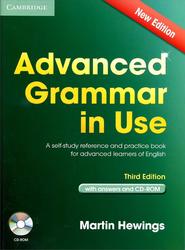 Advanced Grammar in Use, Hewings M., 2013 — Advanced Grammar in Use was written as a self-study grammar book but teachers might also find it useful for supplementing … Книги по английскому языку
Advanced Grammar in Use, Hewings M., 2013 — Advanced Grammar in Use was written as a self-study grammar book but teachers might also find it useful for supplementing … Книги по английскому языку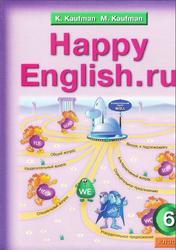 Английский язык, Счастливый английский.ру, 6 класс, Кауфман К.И., Кауфман М.Ю., 2008 — Фрагмент из книги. Напомним, что конструкция to be going to употребляется для выражения заранее принятых решений, составленных планов и намерений … Книги по английскому языку
Английский язык, Счастливый английский.ру, 6 класс, Кауфман К.И., Кауфман М.Ю., 2008 — Фрагмент из книги. Напомним, что конструкция to be going to употребляется для выражения заранее принятых решений, составленных планов и намерений … Книги по английскому языку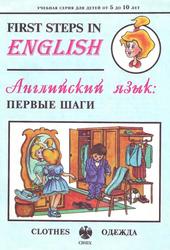 First Steps in English, английский язык, Первые шаги, Одежда и обувь, Минаев Ю. — Учебная серия “First Steps in English” состоит из 15 книг, каждая из которых посвящена определенной теме, хорошо знакомой детям из … Книги по английскому языку
First Steps in English, английский язык, Первые шаги, Одежда и обувь, Минаев Ю. — Учебная серия “First Steps in English” состоит из 15 книг, каждая из которых посвящена определенной теме, хорошо знакомой детям из … Книги по английскому языку

